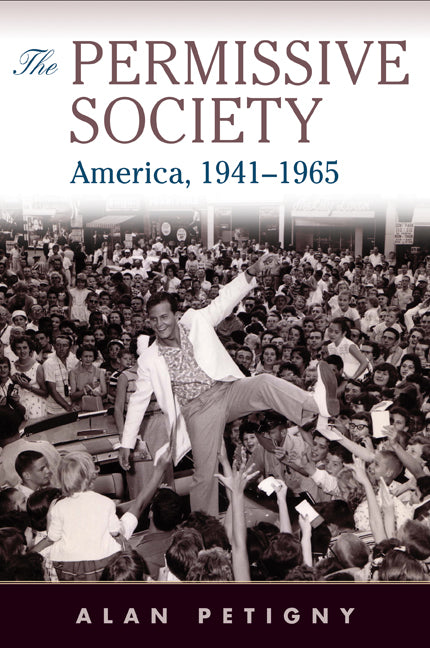Freshly Printed - allow 8 days lead
Couldn't load pickup availability
The Permissive Society
America, 1941–1965
The Permissive Society points to the emergence of a liberalizing impulse during the 1950s, with a traditionalist moral framework giving way to a less authoritarian approach to moral issues.
Alan Petigny (Author)
9780521888967, Cambridge University Press
Hardback, published 31 July 2009
304 pages, 32 b/w illus. 2 tables
22.9 x 15.2 x 2.1 cm, 0.54 kg
'Alan Petigny is a gifted scholar who has meticulously reconstructed the history of the 1950s. Petigny argues persuasively that the 1950s were not truly conservative. Unlike other revisionist accounts that lean heavily on anecdotes, this intellectual history is firmly rooted in statistics that hold persuasive power. Drawing examples from religion, psychology, child rearing, and youth culture, Petigny perceptively shows that the 1950s were part of a century-long liberal shift.' W. J. Rorabaugh, author of Kennedy and the Promise of the Sixties (Cambridge University Press University of Washington, 2002).
In contrast to those who see the 1950s as essentially a conservative period, and who view the 1960s as a time of rapid moral change, The Permissive Society points to the emergence of a liberalizing impulse during the Truman and Eisenhower years. The book shows how, during the 1950s, a traditionalist moral framework was beginning to give way to a less authoritarian approach to moral issues as demonstrated by a more relaxed style of child-rearing, the rising status of women both inside and outside the home, the increasing reluctance of Americans to regard alcoholism as a sin, loosening sexual attitudes, the increasing influence of modern psychology, and, correspondingly, the declining influence of religion in the personal lives of most Americans.
Introduction: rising expectations and the challenge from World War II
1. Psychology: Benjamin Spock, Carl Rogers, and the liberalizing impulse in the 1950s
2. Religion: ballrooms, bingo, blue laws and Billy Graham - piety and secularization in 1950s America
3. Sex: Ingrid Bergman, Elizabeth Taylor and the sexual revolution in the postwar period
4. Women: the rising status of women in the age of Eisenhower
5. The youth culture: rock 'n roll, blue jeans, and the myth of opposition
6. From original sin to self actualization: Jackson Pollock, Charlie Parker, and new notions of identity in postwar America
7. Denouement: the normative lag and the role of religion in the transformation of American culture.
Subject Areas: Sociology [JHB], 20th century history: c 1900 to c 2000 [HBLW], History of the Americas [HBJK]


